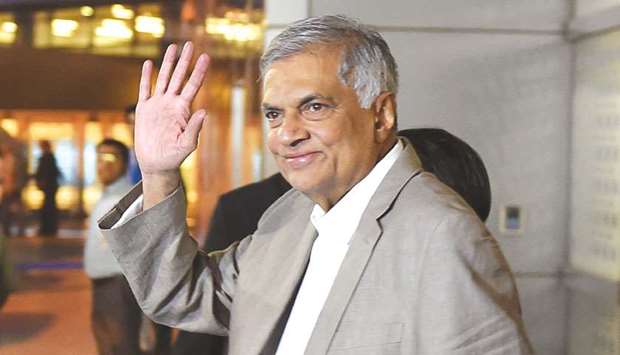Prime Minister Ranil Wickremesinghe will meet his counterpart Narendra Modi tomorrow in New Delhi, the Indian capital, for talks. The two countries have long-standing ties, partly because of cultural and ethnic links with Tamils, many of whom live in the island’s north and east.
In April, state-run China Railway Beijing Engineering Group Co Ltd won a tender worth more than $300mn to build 40,000 houses in Jaffna in Sri Lanka’s north, with China’s Exim bank to provide funding. But the project was halted after residents demanded brick houses, saying they preferred their traditional type of dwelling instead of the concrete structures the Chinese firm had planned.
On Wednesday, government spokesman Rajitha Senaratne said the cabinet had approved a new proposal for 28,000 houses worth 35.8bn rupees ($210mn) to be built by Indian firm ND Enterprises and two Sri Lankan firms in the north and east.
The planned homes are part of a total requirement of 65,000, he added. “The rest of the houses will be given to firms which are ready to build them at lower prices,” Senaratne told reporters in Colombo, the Sri Lankan capital, adding that China could also be considered in future for the remaining housing projects.
In Beijing yesterday, foreign ministry spokesman Lu Kang told a regular news briefing China’s co-operation with Sri Lanka was derived from consultations on an equal footing and he hoped that co-operation would be viewed objectively. Critics have said a big Chinese port project and related infrastructure in Sri Lanka’s south have been dragging the country of 21mn people deep into debt.
India has built 44,000 houses in the country’s north in the first phase of reconstruction after a 26-year-war with Tamil Tiger rebels, and plans to rebuild Palaly airport and Kankesanthurai harbour, both heavily damaged in the conflict.
But in recent years, China has swept in, building ports, power plants and highways as part of Beijing’s String of Pearls strategy to build a network of friendly ports across Asia.
India has long considered Sri Lanka, just off its southern coast, as within its sphere of influence and sought to push back against China’s expanding maritime presence.

